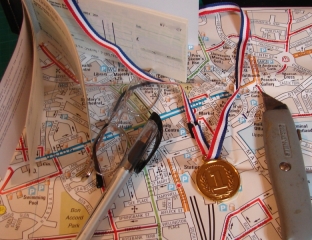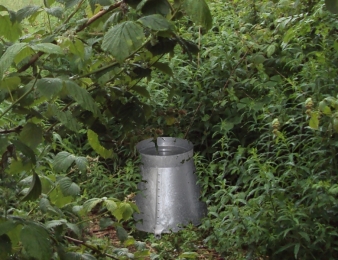By Gubby Plenderleith.
Special Correspondent for Community Affairs
It’s not every day that a community is fortunate enough to have a leading international businessman and multi millionaire as one of its native born citizens and it’s even rarer for a city to benefit from the overwhelming generosity of such a person.
So Aberbonkle is, indeed, privileged to be able to count Sir Nicky Tam, who has pledged part of his personal fortune to the city, as one of its sons.
As is so often the case with amazing people of the calibre of Sir Nicky, he wants very little in return for the money he has promised other than to see his vision fulfilled. So when I was approached with the suggestion that I meet with the great man to find out a bit more about the project, I was overjoyed.
And so it was that I, a humble hack, found myself in the great man’s office listening to his wise words about the city’s future and his vision of a metropolis that would have people from all over the globe descending on Aberbonkle to marvel at its beauty and foresight.
Sir Nicky, however, is clearly a pragmatist and does not try to ignore the fact that some sections of the public have criticised his dream. He accurately, in my opinion, puts this opposition down to envy and the fact that many of his critics lack the facility to embrace change.
“Change is good’, he says, “but there are too many folk out there who are frightened of it.
“I didn’t get where I am today” he continues, “without being able to change things to the way I want them. To the way that I know they should be”.
I ask him how his detractors can be brought onside and he laughs.
“Well, that’s not really my problem”, he rightly says, “it’s down to the Council to sort that one out. I’ve told young Sean Duart that I have a vision and that I’m prepared to put some of my money into funding it. Convincing the Council and the people of Aberbonkle that I’m right is up to him”.
And what, I ask him, is his vision.
no-one has yet managed to convince him that anything he has ever done was not for the best
“My vision,” he says, “is to have an iconoclastic city centre for Aberbonkle. One that will attract people from all over the world to come and marvel”.
Somewhat churlishly, perhaps, I ask him what exactly his vision is
“I think I’ve outlined that”, he says, “an iconoclastic city centre that will attract people from all over the world. The actual nature of it will develop over time and may mean destroying parts of the city to which some of our citizens have cultivated a ridiculous attachment. But these doubting Thomases need to sharpen up their thinking and realise that change is inevitable. Change is coming! Change is good!”
I ask him how he answers the claim made by some of the anti lobby that change is only acceptable where it results in an improvement in what is already there.
“Change,” he says, “is always good. How do you think I managed to build up my business empire into what it is today? Change, that’s how! Changing little minds to my way of thinking in order to move forward and prosper!”
And what happens, I ask, if it turns out that the change he envisages is not as beneficial as he anticipates.
Sir Nicky ponders this for a moment then, fixing me in the eye while a gentle smile plays at the edges of his mouth, states that he has always been a man of compromise and will happily accept any criticism that may be levelled at him. But, he adds, no-one has yet managed to convince him that anything he has ever done was not for the best.
“I am somewhat cursed”, he continues, “by the ability to never be wrong. Everything I do is always right although, regrettably, there are some less fortunate people who are unable to see that I am always right.
“Thankfully, the people who count can see that I’m right and, even if they do not have a full understanding of my ideas, they have the good sense to back them”.
But how, I ask him, does he answer those critics who say that his vision for Aberbonkle is misplaced and will be detrimental to its historic city centre.
“I think I answered that already”, he replies betraying a slight irritation, “when I said that those people who count know that my vision for Aberbonkle is the right one”.
“So those who disagree don’t count?” I ask.
He pauses before favouring me again with his beguiling smile. “If that’s the conclusion you wish to draw”, he says “that’s entirely up to you”.
I thank him for his time and his frankness, we shake hands and I feel a thrill run through the whole of my being as I realise that I have just experienced the privilege of spending time with one of the great men of our age.

